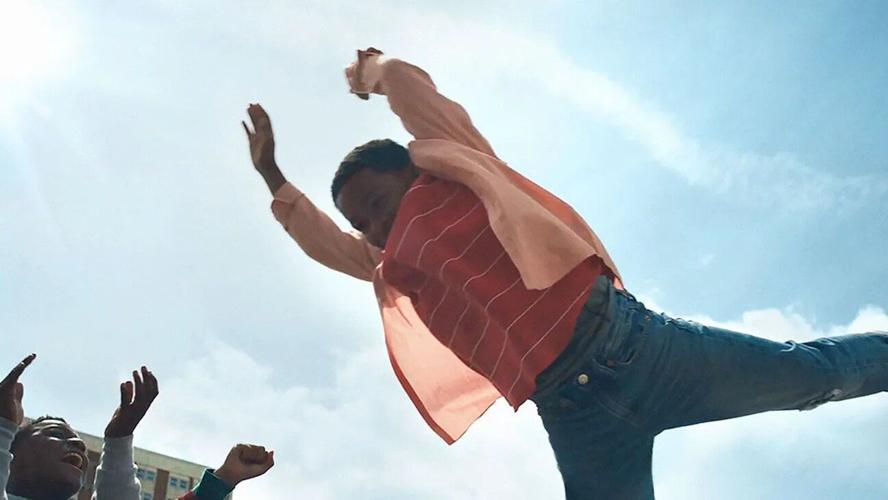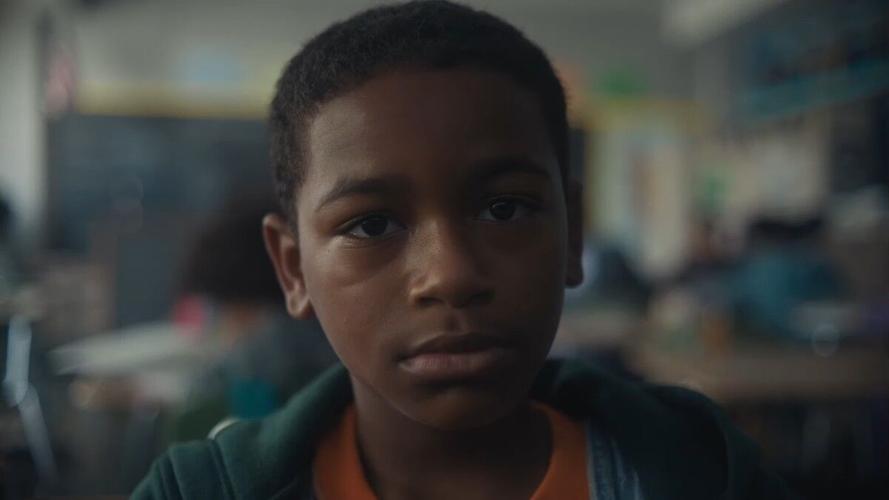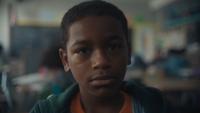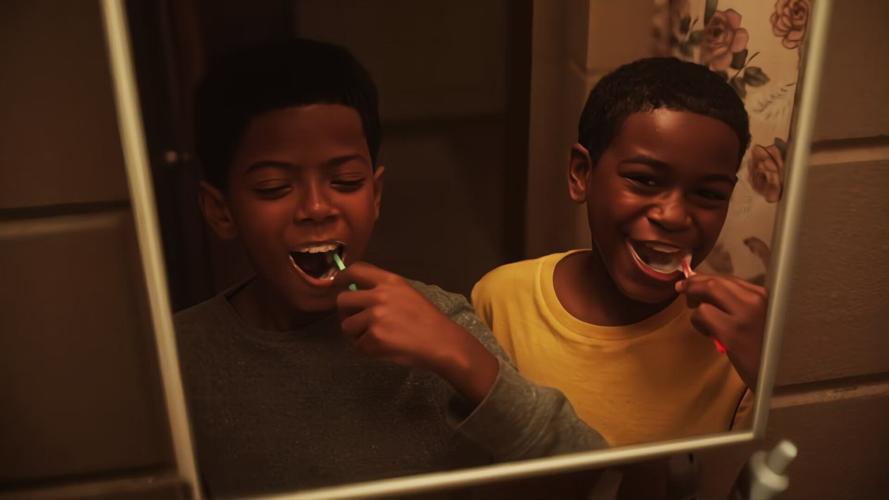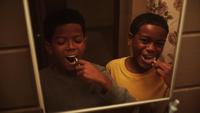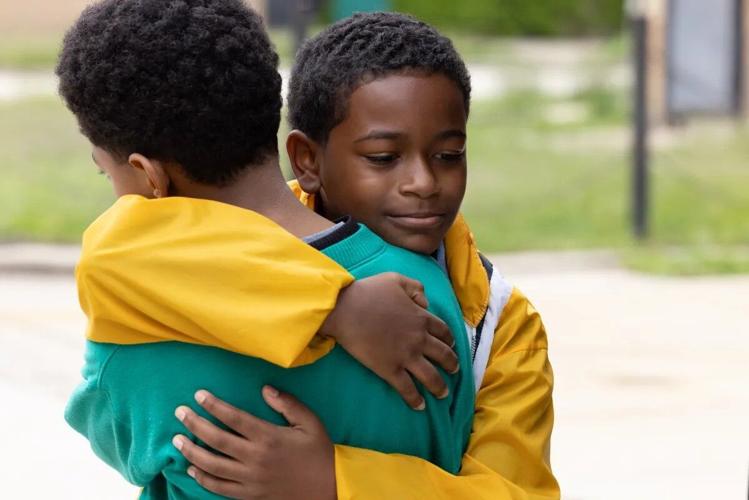After World War II, the city of Chicago built public housing for low income and minority people in the northern section, which came to be called Cabrini-Green. Over the decades, those housing projects fell victim to neglect and crime. It got so bad that by the mid 1990's, the buildings, particularly the high-rises, began being torn down. There have been several films or TV shows that have been set there, including the Norman Lear sitcom Good Times (1974). There haven't been too many films or shows otherwise that have been coming-of-age stories set in Cabrini-Green. In general, there haven't been that many coming-of-age stories involving African American or minority youngsters. This film, written and directed by female filmmaker Minhal Baig, isn't groundbreaking or revolutionary, but Baig does an extremely effective job of telling a coming-of-age story, particularly of a boy and his family, in this specific place.
Jurnee Smollett (Lovecraft Country and Underground) stars as Dolores Johnson, a single mother of a boy and girl, living in an apartment in one of the high-rises of Cabrini-Green in 1992. She and her kids live in the same apartment in which Dolores grew up with her parents. Her father has since passed, but her mother named Anita, played by Emmy-winner S. Epatha Merkerson (Lackwanna Blues and Law & Order), is still alive and resides with them. Dolores has a job, but she's struggling to take care of her kids and their grandmother. Anita suggests Dolores ask for a raise, or a higher paying job, but Dolores is nervous that she could be fired and left with no income.

Blake Cameron James (The Sound of Christmas) co-stars as Malik Johnson, the son and eldest child of Dolores. He's still in elementary school, probably 10 or 11-years-old. He goes to school everyday and he hangs out with his friends, finding ways to entertain themselves in this so-called ghetto. One of those ways is something called mattress jumping or just "jumping." What kids will do is pull old mattresses from beds in abandoned apartments, drag them down to the playground, pile them on top of each other and see who can jump the best on them.
Malik has mastered this game. He obviously loves his family and friends. He likes to laugh and joke with his schoolmates. He likes Cabrini-Green, mainly due to the relationships he has there. Yet, it starts to become clear that Malik wants more than just the life laid out in this ghetto. He dreams about more. This film isn't as blunt about it as something like A Raisin in the Sun (1961), which is very direct about its poor Black characters wanting to escape their situation, of wanting that dream deferred. This film is instead more about Malik's main friendship and how it comes at odds with that so-called dream deferred. It comes at odds mainly due to their different reactions to a shocking moment of violence at Cabrini-Green.

Gian Knight Ramirez in his feature debut plays Eric, a classmate of Malik who lives in the same housing project, one floor away. He's also the same age. He's not as much of a dreamer. He's not as hopeful. In fact, Eric doesn't think he'll ever get out of this ghetto. He thinks he'll die there. He's also not of faith. He likes having fun and hanging out, but he gets a bit hardened after the community is hit with that aforementioned moment of violence.
I viewed this film after watching Simon Steuri's How I Learned To Fly (2023), a film that focuses on two young Black boys in a more desperate situation. Steuri's film had a moment that reminded me of Doug McHenry's Jason's Lyric (1994). Both Steuri and McHenry's films involved a tragic shooting as the inciting incident. There's a tragic shooting here, but it's not the inciting incident for Baig's film. Baig does do something similar to Jason's Lyric in that both the 1994 flick and this one deal with the psychical effect of a tragic shooting on two Black boys in two different ways. Jason's Lyric tracks the long-term effects. This one doesn't, but how the friendship is affected in the short-term is effective and powerful in that it made me cry.

Lil Rel Howery (Free Guy and Get Out) plays Jason, the father to Eric. The main criticism with him is that the film treats him as an afterthought. There was perhaps more stuff with Howery that didn't make the final cut of the film. Obviously, the home life of Malik and his family is the focus, but, given how much Malik's friendship with Eric is crucial, the little we get of Eric's father, Jason, feels frustratingly insufficient.
Rated PG for language.
Running Time: 1 hr. and 33 mins.
In theaters.

